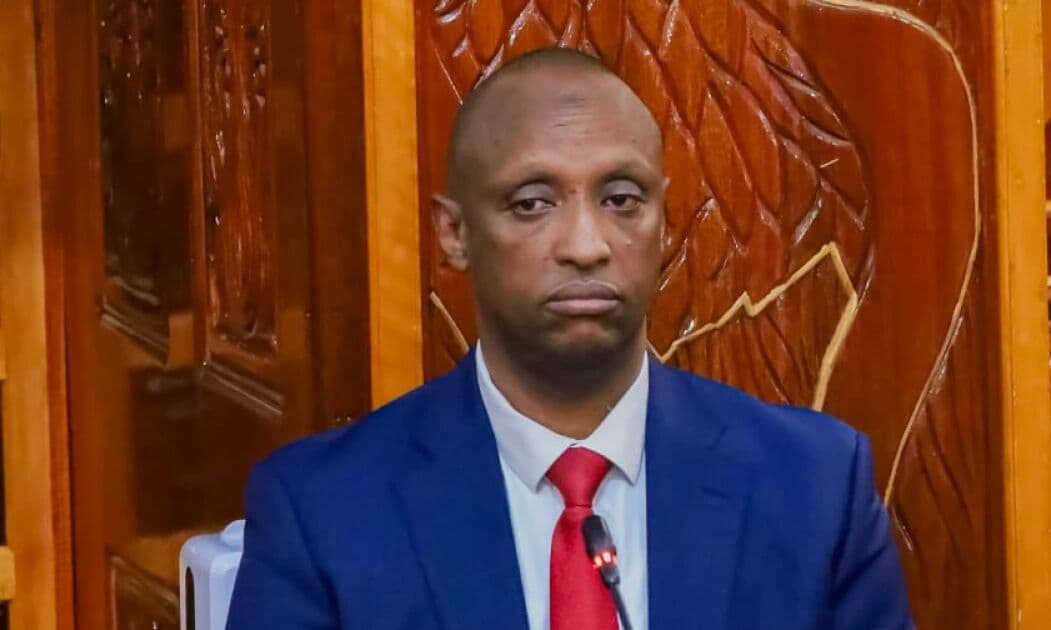We're loading the full news article for you. This includes the article content, images, author information, and related articles.
The impeachment proceedings against Isiolo Governor Abdi Guyo have gripped national attention, not just for their political drama but for what they reveal about the evolving architecture of devolution, accountability, and the enduring undercurrents of political warfare in Kenya.

Byline: Nairobi, Kenya
The impeachment proceedings against Isiolo Governor Abdi Guyo have gripped national attention, not just for their political drama but for what they reveal about the evolving architecture of devolution, accountability, and the enduring undercurrents of political warfare in Kenya. As the Senate prepares to deliberate on Guyo’s fate following his ouster by the Isiolo County Assembly, the case has become a crucible in which Kenya’s promise of decentralized governance is being tested.
Behind the legal jargon and televised theatrics lies a deeper narrative: the struggle to define the boundaries of executive power, the vulnerabilities of devolved units, and the interplay of local and national interests in shaping political outcomes.
Governor Guyo, a first-term county boss and a former Nairobi County Assembly Majority Leader, was impeached on charges that include gross misconduct, abuse of office, irregular procurement, and violation of the Constitution. Among the allegations are claims that his administration awarded tenders without competitive bidding, bypassed county procurement boards, and presided over a breakdown of service delivery.
In their formal resolution, Members of the Isiolo County Assembly accused Guyo of “systemic disregard for the law and the will of the people,” painting a picture of an executive shielded from scrutiny and dismissive of public participation.
Guyo, however, maintains that the charges are politically motivated and driven by personal vendettas, asserting that his efforts to restructure bloated contracts and confront entrenched interests triggered backlash from powerful quarters within the county assembly.
“This is not about governance; it’s about control,” Guyo told reporters shortly after the impeachment motion passed. “I have stepped on toes because I refuse to be a puppet of cartels.”
The Constitution of Kenya (2010) enshrines impeachment as a tool for oversight and public interest—but also cautions against its abuse. The Guyo saga reveals both sides of that coin.
On one hand, it showcases the strength of Kenya’s devolved institutions: local assemblies can hold governors to account, and the Senate plays a pivotal role in ensuring due process. This is a marked departure from the pre-2010 era, when such accountability was rare outside national politics.
Yet observers warn that impeachment has also become a blunt political weapon, used less for reform than for retribution. Since devolution began in 2013, more than a dozen governors have faced impeachment attempts—often amid factional battles rather than clear-cut administrative failures.
“In many cases, impeachment is less about performance and more about patronage,” says Dr. Nyokabi Kamau, a political scientist at the University of Nairobi. “The Guyo case illustrates how fragile county-level power structures can be, especially when personal loyalty is prioritized over institutional integrity.”
While the tension appears localized, there are indications that national forces may be influencing the proceedings. Guyo, seen by many as a politically savvy operator with deep ties in Nairobi, is believed to have fallen out with some influential figures in both local and national power circles.
His rise from Nairobi’s City Hall to Isiolo’s governorship was viewed with skepticism by some northern Kenya leaders who considered him an outsider. His reform agenda, particularly efforts to streamline county procurement and reassign strategic contracts, reportedly ruffled feathers among entrenched interests.
“The impeachment is as much about local elite rivalries as it is about Nairobi power dynamics,” notes constitutional lawyer Wachira Maina. “Guyo is not just fighting a legal case—he is navigating a minefield of political betrayal and regional contestation.”
The Senate, constitutionally mandated to determine the validity of the charges, now finds itself in a familiar but increasingly scrutinized role. Past impeachment trials—such as those involving governors Mike Sonko, Ferdinand Waititu, and Anne Waiguru—have exposed both the strengths and weaknesses of senatorial oversight.
Critics argue that the Senate’s decisions have often mirrored political alignments rather than the facts presented, raising concerns about partisanship and executive influence. How the Senate handles the Guyo case could either restore public confidence or deepen cynicism toward the impeachment process.
“Will the Senate act as a true court of law and conscience—or will it become just another arena of political score-settling?” asks Transparency International Kenya in a recent statement.
The impeachment of Governor Abdi Guyo is more than a personal or regional saga—it is a mirror reflecting the tensions inherent in Kenya’s experiment with devolution. At its best, devolution was meant to democratize development, bring power closer to the people, and institutionalize accountability. But as this case shows, it can also become a terrain for localized power struggles, elite manipulation, and blurred lines between public interest and political rivalry.
As the Senate weighs its decision, the stakes go beyond Isiolo. The outcome will either reinforce the principles of oversight and rule of law—or expose the extent to which devolution can be hijacked by political machinations.
In the end, Guyo’s fate may serve as both precedent and parable—for governors, MCAs, and a public still waiting for devolution’s full promise to be realized.
Keep the conversation in one place—threads here stay linked to the story and in the forums.
Other hot threads
E-sports and Gaming Community in Kenya
Active 8 months ago
The Role of Technology in Modern Agriculture (AgriTech)
Active 8 months ago
Popular Recreational Activities Across Counties
Active 8 months ago
Investing in Youth Sports Development Programs
Active 8 months ago